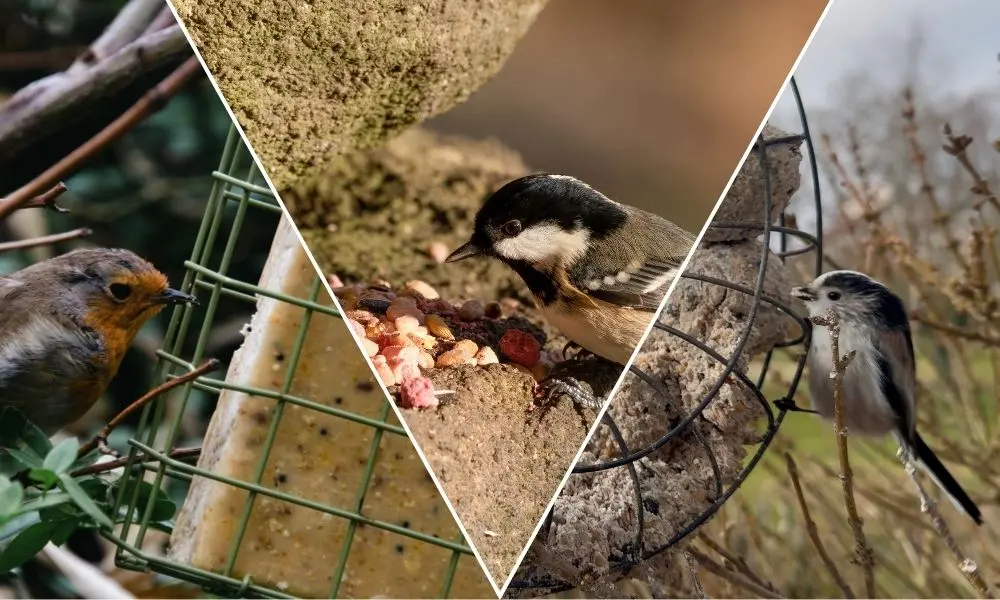RSPB: The ‘super food’ gardeners can leave out to attract birds – and help them out over the coming winter
By Amber Allott
Copyright glasgowworld

At this time of year, many birds are seeking out high-energy food sources The RSPB recommends feeding suet, a type of animal fat Suet is popular with many garden birds and provides much needed fuel It comes in many forms – and there are even some plant-based alternatives available
September has brought with it cooler weather and shorter days, and across the UK, humans aren’t the only ones feeling the chill.
Wildlife, including the birds so many of us love sharing our parks and gardens with, are also busy preparing for winter right now. Whether they’re fuelling up for an annual migration to sunnier shores, or stockpiling goodies for the upcoming cold season, there’s a real need for high-quality, energy-rich food sources amongst our feathered friends.
We’ve checked out conservation charity the Royal Society for the Protection of Birds’ (RSPB) advice for gardeners on feeding birds in your backyard or garden – and what to give them to help out the most at this time of year. One common bird feed ingredient stood out as both especially useful, and able to attract a range of species – suet.
But what exactly is it, and how is it beneficial to garden birds? Here’s everything you need to know:
What is suet – and how does it help birds?
Suet is the hard fat from around the kidneys of sheep and cows, and is sometimes considered a waste product in the meat industry. But the RSPB says that suet products are “excellent high energy-giving foods for winter”, and are popular with a wide range of bird species to boot.
“Birds need high-energy, high-fat foods during cold weather,” the wildlife charity continued. According to the British Trust for Ornithology (BTO), this is because many garden birds need to build fat reserves to help keep them warm through cold nights.
But smaller species like blue tits can sometimes only lay down enough for a single chilly sleep. They can lose up to 5% of their body weight overnight, and they will have to spend all of the next day searching for food to replenish it.
For this reason, the RSPB recommends that nature-loving gardeners put out bird food and water on a regular basis through the autumn and winter months – especially rich, fatty ones. “Always adjust the quantity given to the demand, and never allow uneaten foods to build up,” its advice says. “Once you have a feeding routine, try not to change it as birds will become used to it.”
Which birds will it attract to the garden?
Suet, in its various forms, will be eaten by all sorts of garden birds. These include blackbirds; blue, great, coal, and long-tailed tits; house sparrows; robins; starlings; wrens; song thrushes, and more.
Sometimes, it will even attract more unusual visitors. Great spotted woodpeckers and nuthatches will also sometimes visit bird feeders to fuel up on the calorie-dense treat.
Where can I get it, and what else should I feed birds this September?
Suet comes in many forms, from cakes, to balls, to pellets. It is often mixed in with other ingredients, but the RSPB warns that you should look for good quality bird food – “those that don’t include ‘fillers’ such as dried peas and beans, red dari and wholewheat that birds rarely eat”.
Bird-safe suet products are available at most garden stores, and even many supermarkets. The RSPB also sells a wide range of them online here. If you belong to a vegan or vegetarian household or are uncomfortable feeding animal fats, they also have a plant-based suet alternative – made from peanuts, ground oats and UK-grown rapeseed.
Other energy-rich food sources birds will enjoy this time of year include mealworms, peanuts, sunflower hearts, nyjer seeds, or even fresh fruit like apples or pears. But remember to clean your bird feeders regularly, to make sure they don’t spread diseases between your beloved garden visitors.
Keen to try a more long-term and sustainable approach to supporting wildlife in your garden? Here are four beautiful flowering plants in bloom right now, which will help birds and pollinators out too.



